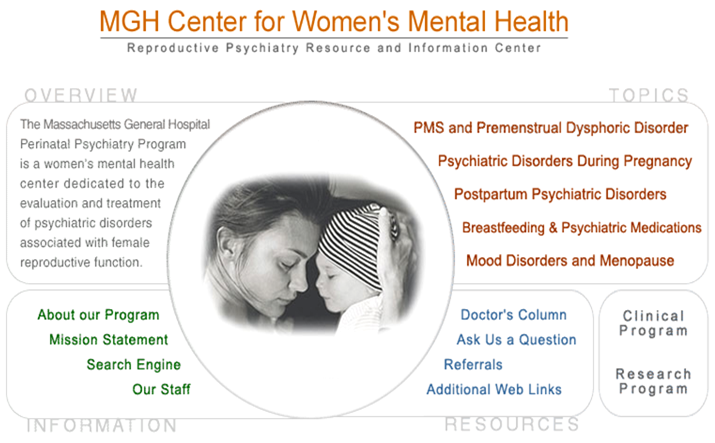Soon after the Center for Women’s Mental Health was established in 1989, we started receiving phone calls (followed by emails) from women and their treaters seeking information regarding the safest way to treat psychiatric disorders during pregnancy and the postpartum period. Over the years we tried to respond to as many of those queries as possible by fielding questions from patients and colleagues and sending out relevant articles. But that was just the beginning. . .
In 2001, we launched the Reproductive Psychiatry Information Resource Center, our first website, as a means of providing critical up-to-date information to patients and their treaters in the rapidly changing field of women’s mental health. Since that time, the field of reproductive psychiatry has flourished, and the number of visitors to our website has also grown, reaching one million views last year.
While there is now so much more information available regarding the treatment of psychiatric illness in pregnant and postpartum women, it is somewhat ironic that the availability of more data has not made it easier for the clinician but has brought about a need for greater scrutiny. With so many research studies and so many publications, often providing conflicting or inconsistent data, it can be a daunting task to wade through that information in order to generate well-informed clinical decisions. How do we take the growing amount of data and forge a clinical path or guideline that mitigates suffering for the patient while maximizing safety? Answering this question has remained our mission over the past 15 years since founding www.womensmentalhealth.org.

The original Reproductive Psychiatry Information Resource Center in 2001
It is our hope that we can continue to provide accurate, up-to-date information that can inform clinical decision-making. To that end, we will now launch a new version (3.0) of our website. This website will continue to provide information regarding the treatment to psychiatric disorders in women across the life cycle and will allow us to reach a larger audience, with new user-friendly capabilities on mobile devices. We look forward to this endeavor and encourage your feedback; thank you for your support. View the new version of the site on desktop and mobile devices (iOS and Android) and please also follow us on Facebook and Twitter.
Ruta Nonacs, MD PhD and Lee S Cohen, M.D.








Leave A Comment